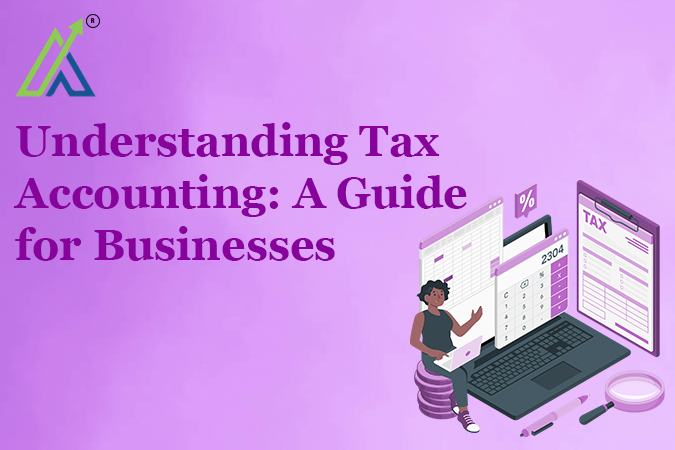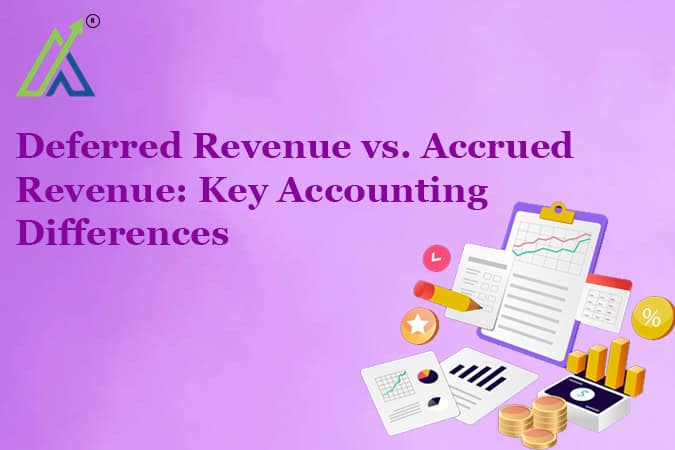Tax accounting is the foundation of financial compliance and strategic strategy for Indian businesses. Tax accounting focuses on calculating taxable revenue, ensuring regulatory compliance, and optimizing tax obligations, whereas general accounting focuses on producing financial statements for stakeholders.
Learning tax accounting helps one survive and flourish in a country like India, where the tax scene is a maze of direct taxes, indirect taxes, and occasionally shifting laws, not just for avoiding fines. From Bengaluru startups to Gujarati industrial giants, this book outlines company tax accounting rules.
What is Tax Accounting? Why Does It Matter?
Under Indian rules, tax accounting is mostly concerned in recording revenue, costs, and transactions to ascertain tax due. It guarantees adherence to the Income Tax Act, 1961, Goods and Services Tax (GST) Act, 2017, and other laws. For companies, proactive financial planning takes precedence beyond merely completing returns. One mistake—such as misclassifying a cost or neglecting a GST deadline—can set off audits, fines, or even legal disputes.
Imagine a Mumbai-based IT business claiming too much Section 80JJAA (for staff hire) deductions. Without suitable documentation, the Income Tax Department might suffer. Similarly, a Delhi store unable to balance GST input tax credits might run with cash flow issues. By linking compliance and strategy, tax accounting ensures businesses stay on the right side of the law and lowers liabilities.
Key Components of Tax Accounting in India
Businesses who want to properly handle tax accounting in India have to know the several elements influencing their tax responsibilities. These elements comprise direct and indirect taxes, tax credits and deductions, and the compliance and filing procedures necessary to keep on the correct side of the law. The main components of tax accounting are broken out here:
Direct Taxes: Income Tax and Corporate Tax
- Income Tax: Both an individual’s and a business’s annual income is subject to income tax during a fiscal year. The Income Tax Act, 1961, which establishes the guidelines for income tax assessment, collection, and calculation, governs the Indian income tax system.
- Corporate Tax: A corporation is an entity formally different from its owners. Both local and foreign companies have to pay corporate tax under the Income-tax Act. Whereas a local company is taxed on its worldwide income, a foreign business is only taxed on income earned within India—that is, money acquired or received within India.
Indirect Taxes: GST and Beyond
- GST: The Goods and Services Tax is referred to as GST. It is an indirect tax that has taken the place of other indirect taxes in India, including services tax, VAT, and excise duty. On March 29, 2017, the Parliament enacted the Goods and Service Tax Act, which became operative on July 1st.
- Customs Duty: When items are carried over international boundaries, a fee known as “customs duty” is applied. Customs duties are imposed with the intention of protecting each country’s economy, employment, environment, citizens, etc. by controlling the flow of products into and out of that country, particularly items that are restricted or forbidden.
Tax Deductions and Credits
- Deductions: Sections like 80C (investments up to ₹1.5 lakh), 80D (health insurance), and 80JJAA (employment incentives).
- Input Tax Credit (ITC): Businesses seeking credits for taxes paid on inputs under GST Raw material CGST paid can be deducted by a Pune-based textile dealer against CGST liability on completed items.
Compliance and Filing: Navigating Deadlines and Documentation
India’s tax calendar is relentless. Miss a deadline, and the consequences pile up:
- Income Tax:
- Advance tax installments (June 15, Sept 15, Dec 15, March 15).
- ITR filing due July 31 (individuals) / Oct 31 (audit cases).
- GST:
- Monthly returns (GSTR-1 by the 11th, GSTR-3B by the 20th).
- Annual return (GSTR-9) by Dec 31.
Documentation is king. Maintain:
- Invoices (GST-compliant with HSN codes).
- Bank statements and audit reports (for turnovers above ₹1 crore).
- TDS certificates (Form 16A for vendors, Form 16 for employees).
Challenges in Indian Tax Accounting
Tax accounting in India poses several difficulties even if it gives companies chances to maximize their tax obligations. These difficulties result from the complexity of GST, regular tax law changes, and audit risk. Following are some of the main difficulties companies in Indian tax accounting experience:
GST Complexities
- Multi-state operations:
Under GST, an e-commerce company with headquarters in Hyderabad has to follow TCS (Tax Collected at Source) for interstate transactions. - ITC mismatches: This may make it difficult to claim ITC, which might cause problems with cash flow and compliance.
Audit Risks
To identify inconsistencies, tax officials employ data analytics. For example, despite having a large turnover, a diamond exporter located in Surat is reporting poor profitability. Anticipate investigation under Section 44AD, which deals with presumed taxes.
Best Practices for Efficient Tax Accounting
Businesses should follow best practices that simplify procedures and reduce mistakes if they want effective tax accounting and uphold compliance. Here are some fundamental habits to use for best tax control:
Leverage Technology: Use products that automatically TDS calculations and GST filing and offer error-free reports.
Hire Experts: Chartered accountants translate complications like capital gains for real estate companies or transfer pricing for MNCs.
Regular Audits: Internal audits help to find early discrepancies. To fight GST fraud, for instance, a chain of hotels in Jaipur reconciled cash vouchers monthly.
Stay Updated: Subscribe to CBDT/CBIC notifications for real-time updates.
Questions to understand your ability
Q1.) What’s the main job of tax accounting in India?
A) Just making financial statements look good
B) Figuring out taxable income and following tax laws
C) Avoiding penalties by any means
D) Checking how healthy a business is financially
Q2.) Which one of these isn’t a direct tax in India?
A) Income Tax
B) Corporate Tax
C) GST (Goods and Services Tax)
D) Both A and B
Q3.) Which part of the Income Tax Act allows for up to ₹1.5 lakh in deductions for investments?
A) Section 80C
B) Section 80D
C) Section 80JJAA
D) Section 32
Q4.) In India, when should an individual file their income tax returns (ITR)?
A) June 15
B) July 31
C) October 31
D) March 15
Q5.) In Indian tax accounting, which of these is a major pain point?
A) The mess that is GST
B) Tax laws changing every few months
C) Data analytics making audits a nightmare
D) All of the above
Conclusion
Tax accounting in India isn’t for the faint-hearted. Between GST complexities, shifting Income Tax slabs, and compliance deadlines, businesses must stay agile. But with the right tools, experts, and proactive planning, tax accounting transforms from a compliance burden into a strategic asset. Whether you’re a Kanpur-based MSME or a Mumbai unicorn, remember: Pay your taxes, but don’t overpay.
FAQ's
It’s all about tracking income and expenses to figure out what you owe in taxes. And yep, you gotta follow the rules.
It’s the key to staying legal, avoiding penalties, and cutting down tax costs. Mess up, and you’re looking at fines or worse.
Direct taxes like income tax and corporate tax. Then there’s indirect stuff like GST and customs duty.
Think Section 80C (investments), 80D (health insurance), and 80JJAA (staff incentives). Don’t miss out!
GST is the big tax replacing old ones like VAT. Businesses need to keep up with regular returns to avoid trouble.
GST mess, multi-state rules, mismatched tax credits, and data-driven audits. Keep your eyes open or it’ll cost you.
Advance tax dates, income tax return deadlines, and GST filings. Forget one, and things get messy fast.
Use tech to automate stuff, hire pros for tricky tax issues, audit often, and stay updated on rule changes.





